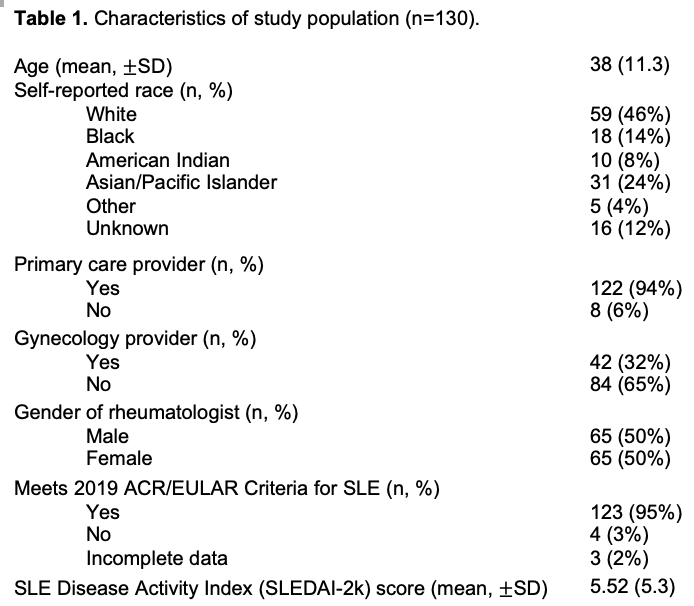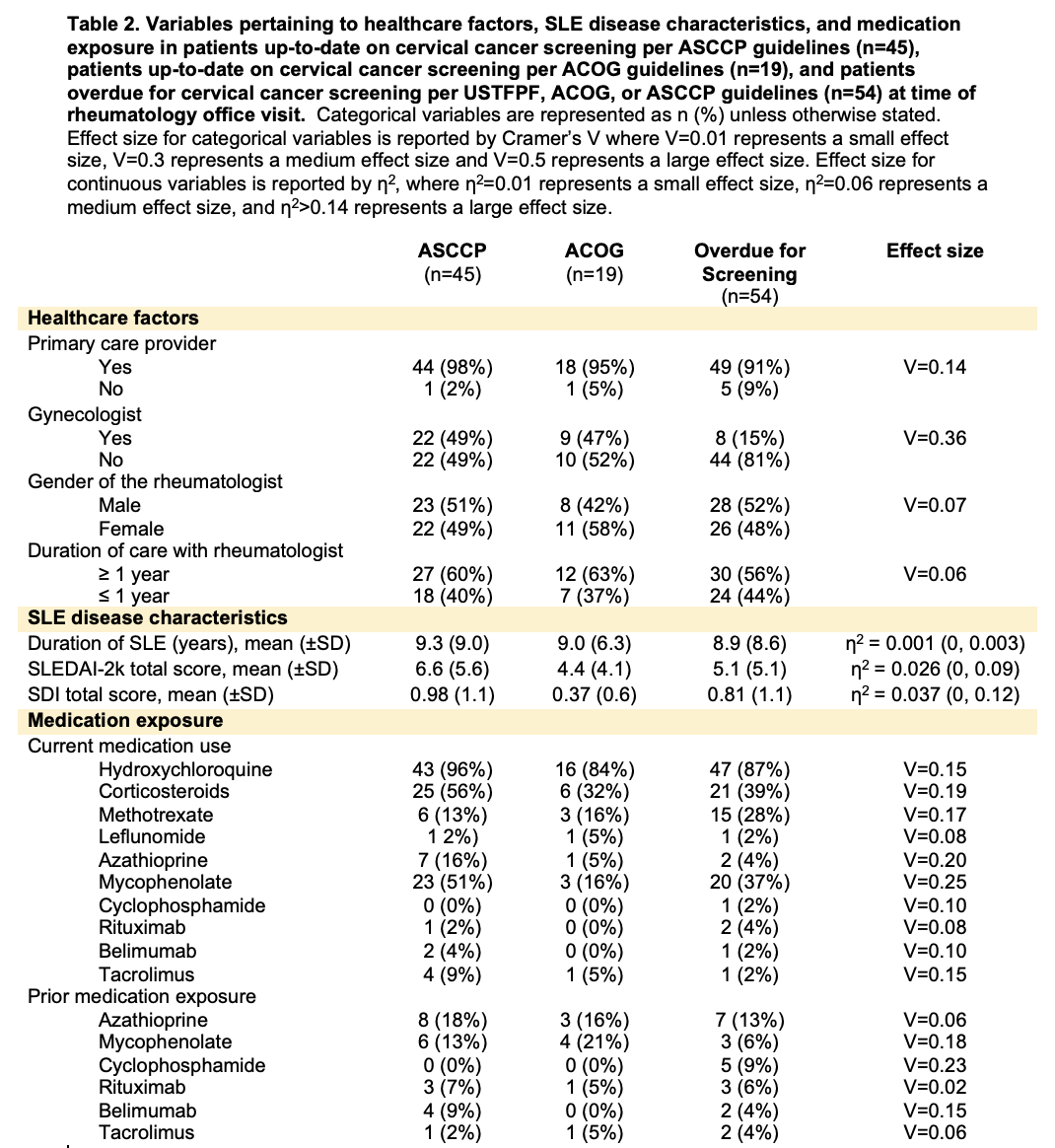Session Information
Date: Monday, November 8, 2021
Title: Abstracts: Reproductive Issues in Rheumatic Disorders (1464–1467)
Session Type: Abstract Session
Session Time: 4:45PM-5:00PM
Background/Purpose: Women with systemic lupus erythematosus (SLE) are vulnerable to cervical dysplasia. This is due to the persistence of human papillomavirus (HPV) related to immunosuppression and also immune dysregulation inherent to the disease. Thus, routine screening for cervical cancer is important for SLE women. The United States Preventative Services Task Force (USPSTF), American College of Obstetricians and Gynecologists (ACOG), and the American Society of Colposcopy and Cervical Pathology (ASCCP) all provide different recommendations regarding screening intervals. The ASCCP provides the only SLE-specific guidelines, advising more frequent screening in this patient population. The purpose of this study was to investigate the prevalence of up-to-date cervical cancer screening per ASCCP guidelines among SLE women established in our institution’s registry program. In addition to identifying the organizational recommendations providers most frequently utilize, we aimed to identify SLE disease-specific determinants associated with overdue screening.
Methods: Inclusion criteria were women aged 21-65 years enrolled in our institution’s SLE registry program. Data regarding cervical cancer screening status at the time of her last rheumatology clinic visit was obtained by retrospective chart review. Data regarding disease duration, 2019 ACR/EULAR SLE classification criteria, SLEDAI-2k score, SLE damage index (SDI) score, immunosuppressant exposure, and gynecologic history were collected. Descriptive statistics and univariable analyses were performed. Effect sizes were characterized by Cramer’s V statistic for categorical variables and by eta squared for continuous variables.
Results: Our study included 130 women with SLE who met eligibility criteria. The mean age (±SD) was 38 (11.3) years, 46% self-reported her race as white (Table 1). 95% met 2019 ACR/EULAR criteria for SLE; mean SLEDAI-2k score (SD) was 5.5 (5.3). 94% had a primary care provider, but only 32% had established with a gynecologist. There were 12 women for whom screening status could not be determined, resulting in a sample size of N=118 for the univariable analysis of correlates of screening status. 45 women were up-to-date with screening per ASCCP guidelines, 19 women per ACOG guidelines, and 54 women were overdue for screening. Patients without a gynecologist were more likely to be overdue for screening. A higher proportion of women screened per ASCCP guidelines were on immunosuppressive medications compared to women screened per ACOG guidelines and those overdue. SLE disease characteristics were not associated with screening patterns (Table 2).
Conclusion: Only half of the women with SLE in our study cohort had guideline-congruent care for cervical cancer screening. A greater proportion of women screened per ASCCP guidelines were on immunosuppressive medications compared to those screened by ACOG guidelines. This study reveals the variety of practice patterns employed for cervical cancer screening in our SLE population and suggests the need for increased awareness among rheumatologists, primary care providers, and gynecologists regarding the ASCCP SLE-specific screening guideline schedules.
To cite this abstract in AMA style:
Chung S, Oshima K, Thomason J, Singleton M, Singh N. Determinants of Cervical Cancer Screening Patterns Among Women with Systemic Lupus Erythematosus [abstract]. Arthritis Rheumatol. 2021; 73 (suppl 9). https://acrabstracts.org/abstract/determinants-of-cervical-cancer-screening-patterns-among-women-with-systemic-lupus-erythematosus/. Accessed .« Back to ACR Convergence 2021
ACR Meeting Abstracts - https://acrabstracts.org/abstract/determinants-of-cervical-cancer-screening-patterns-among-women-with-systemic-lupus-erythematosus/


